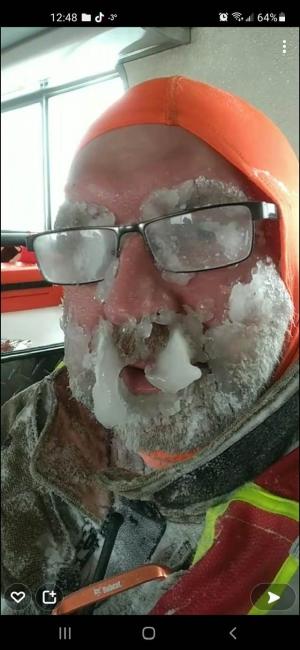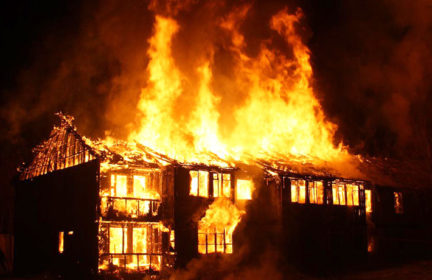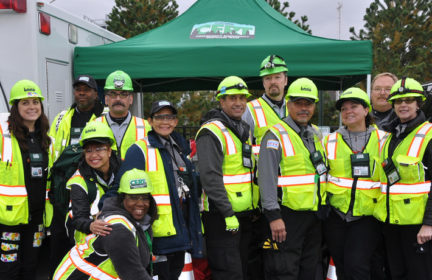Volunteer fire departments
I was surprised to read that 92% of the 812 fire departments in my state are all volunteer or mostly volunteer. The number of volunteers is shrinking. This factors into where I want to live. I want to live where there are some paid professional fire fighters.
I think I’m turning into a proponent of living in a town big enough for some paid professional first responders (and hopefully a small hospital) yet a town small enough to avoid traffic congestion and sprawl. As I noted in a different thread, there are options besides big city and rural country in terms of places to live. At a minimum, know the robustness of your fire fighter pool.
-
Best Replies
Mr. Mark Mr. Mark - February 28, 2022
Smaller volunteer firefighting units often lack good equipment. If you can’t serve, consider a donation to the department. I learned many years back our department needed more firefighters, but didn’t have turnouts for any new members. “Turnouts” are the helmet, heavy coats, trousers and boots, all of which are expensive. I donated my income tax returns that year, which allowed the department to buy three sets of turnouts and eventually took on three more volunteers. Talk to your Chief! I’m sure he can tell you how to support and sustain your volunteer fire department.
-
Comments (9)
-
Barb LeeContributor - February 18, 2022
We live in semi-rural Clackamas County, southeast of Portland OR. Our area is speckled with fire stations, many are primarily manned by volunteers My husband was a volunteer when he was younger.
Volunteer fire departments rock! They saved my life once and helped put out a grass fire in our pasture with a massive assault by MANY fire stations. Our Fire District has outstanding equipment, probably in large part because of people like us who love them to death and support their budgets at every election where it comes up.
Our crises were attended by both volunteers and pros. The volunteers were giving massive support (shuttling water tankers back and forth, etc.) while the pros did their jobs.
When I fell from my horse and broke my neck, the first responder was a volunteer who lives up the street. He tenderly held my head still until the EMTs from a fairly distant station could arrive to get me on a backboard and into an ambulance. I looked up in his face and knew I was being attended to by an angel.
Responses were within mere minutes of the 911 calls.
Believe me, volunteer firefighters are well trained and know their jobs. At least here they are. They provide critical support to the pros, who are few and far between.
I’ll bet a call to your fire district would answer many questions about whether you want to make this a criterion for decisions about where to live.
-
Seasons4 - February 18, 2022
Hi, Dogpatch. Oh, I agree that volunteer firefighters are well trained and know their jobs. My point and the the point of the article is that there are fewer and fewer volunteers, at least in my state. Things might be different elsewhere.
Also, I’m glad you recovered from the fall, and I’m glad the first responder was there in a flash.
-
-
hikermor - February 19, 2022
Would it not be better, rather than the pay status, to look at results of the efforts of thee first responders. Do they accomplish the mission or not?
-
Seasons4 - February 19, 2022
Hi, hikermor. Yes, that would make sense if the number of volunteers was expected to remain stable (and related resources were expected to remain stable) and the magnitude of the threat was expected to remain stable. If those variables are expected to change in the future, that’s relevant information.
For example, if I want to pick a suitable place to live for the next 20 years, it makes sense to think about how those variables might change in the next 20 years — impact of climate change, impact of demographics (aging of the baby boomers), impact of tax base growing or shrinking based on population trends, impact of my health and statistically possible health issues over time, all those kinds of things. I’m attempting to be forward looking.
For example, the article talks about the proportion of fire calls vs. medical emergency calls that the fire departments surveyed receive. I didn’t realize that medical responders had so many different levels of training. Some can do some things but not other things. I live in a county with lots of elderly people. I read somewhere that it’s a problem for them to respond to so many “I’ve fallen, and I can’t get up” calls. I want to think through the kinds of demands likely to fall on fire departments in the next 20 years where I live.
-
-
Roland - February 19, 2022
I am well past the age that I could volunteer for such a worthy cause, but knowin now that so many are volunteers makes me want to reach out and see how I can support them.
Low number of fires in the area and low budgets, are probably the cause of so many being staffed with volunteers. It is concernin however that the number of volunteers is shrinkin. What happens during a particularly hard year in the economy and people are givin up their volunteer time to work a second job? That could lead to some issues and disasters.
-
Sheilah - February 21, 2022
I worked for years with local governments that had volunteer fire departments. The number of volunteers has definitely declined over the years in those departments. One of the problems is that more people drive a farther distance to commute to their jobs, and are not near enough to their home community to respond quickly enough to a fire or EMS call. The communities I worked with required a volunteer to respond to a call for a minimum percentage of time, and had regular weekly training sessions that were also required to be attended. Many people do not want to or cannot commit to spending the amount of time required by these departments. Another issue is the unwillingness of employers to allow time away from the job for a response. When some larger employers were locally owned, they actively encouraged their employees to volunteer and were very supportive of the local volunteer fire departments. But a lot of local companies have been bought up by large nationwide or international concerns that do not have the same stake in the local communities.
-
Gideon ParkerStaff - February 26, 2022
Picture of volunteer fire fighter who responded to a 14 car pile up during a nasty storm. Real heroes!
Here’s a video clip of the accident and conditions these first responders were working in.
-
Mr. Mark - February 28, 2022
Smaller volunteer firefighting units often lack good equipment. If you can’t serve, consider a donation to the department. I learned many years back our department needed more firefighters, but didn’t have turnouts for any new members. “Turnouts” are the helmet, heavy coats, trousers and boots, all of which are expensive. I donated my income tax returns that year, which allowed the department to buy three sets of turnouts and eventually took on three more volunteers. Talk to your Chief! I’m sure he can tell you how to support and sustain your volunteer fire department.
-
Henry Tubbs - February 28, 2022
I like that idea more than donating to some cause on the other side of the country where the CEO of the foundation makes quarter million a year. Your donation may (hopefully not) pay off someday when that firefighting gear is used to save your home.
-
-
- News for the Week 2025-3-31 - 4 days ago
- News for the Week 2025-3-24 - 2 weeks ago
- News for the Week 2025-3-17 - 3 weeks ago
- News for the Week 2025-3-10 - 4 weeks ago
- News for the Week 2025-3-3 - 1 month ago
This forum is heavily moderated to keep things valuable to as many people as possible. Full community policies are here. The basics:
- 1. Be nice to each other.
- 2. Stay focused on prepping.
- 3. Avoid politics, religion, and other arguments.
- 4. No unfounded conspiracies, fake news, etc.
- 5. Debate ideas, not people.


